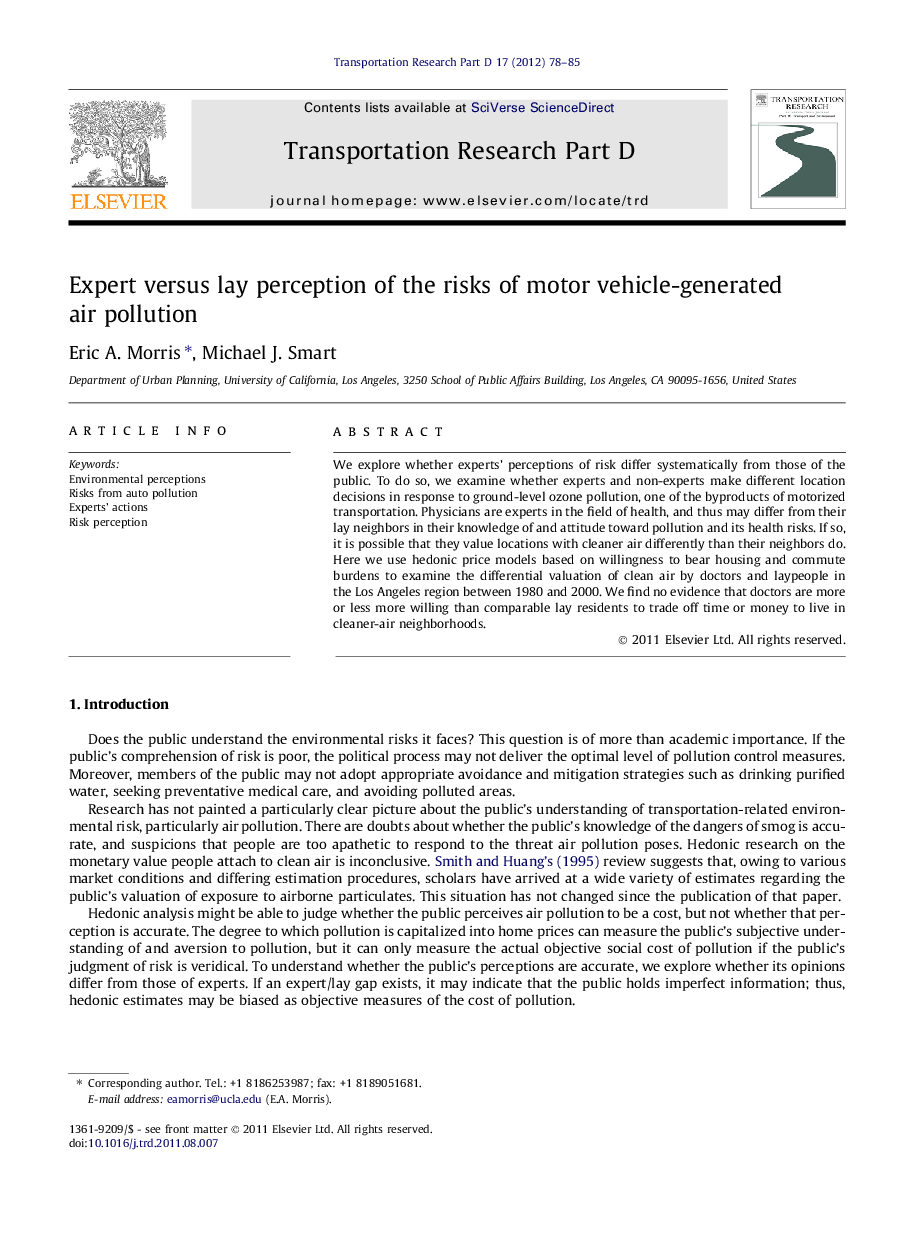| Article ID | Journal | Published Year | Pages | File Type |
|---|---|---|---|---|
| 1065986 | Transportation Research Part D: Transport and Environment | 2012 | 8 Pages |
We explore whether experts’ perceptions of risk differ systematically from those of the public. To do so, we examine whether experts and non-experts make different location decisions in response to ground-level ozone pollution, one of the byproducts of motorized transportation. Physicians are experts in the field of health, and thus may differ from their lay neighbors in their knowledge of and attitude toward pollution and its health risks. If so, it is possible that they value locations with cleaner air differently than their neighbors do. Here we use hedonic price models based on willingness to bear housing and commute burdens to examine the differential valuation of clean air by doctors and laypeople in the Los Angeles region between 1980 and 2000. We find no evidence that doctors are more or less more willing than comparable lay residents to trade off time or money to live in cleaner-air neighborhoods.
► We employ a hedonic analysis method to test doctors’ versus laypeople’s perception of smog. ► Physicians are no more or less willing than others to pay financially for cleaner air. ► Physicians are no more or less willing than others to trade time for cleaner air.
